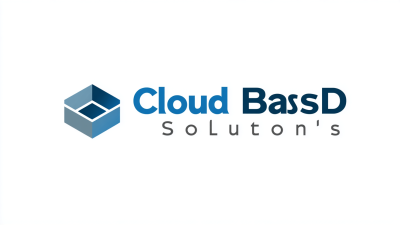How to Enhance Business Efficiency with Managed Cloud Solutions
In today's fast-paced business environment, organizations are constantly seeking ways to optimize their operations and improve efficiency. One increasingly popular approach is the adoption of Managed Cloud solutions, which provide businesses with the ability to leverage cloud technology without the burden of managing the underlying infrastructure. By outsourcing the complexities of cloud management to specialized providers, companies can focus more on their core competencies while enjoying the agility and scalability that cloud services offer. This blog will explore the various types of Managed Cloud solutions available, how they can streamline processes, reduce costs, and enhance overall business performance. As we delve into each aspect, we’ll illustrate the transformative impact of Managed Cloud on efficiency and innovation in the workplace.

Benefits of Managed Cloud Solutions for Business Efficiency
In today's fast-paced business environment, enhancing efficiency is crucial for staying competitive, and managed cloud solutions offer a strategic advantage. According to a report by Gartner, organizations that adopt cloud services can decrease IT costs by up to 30% over five years while improving service delivery speeds. Managed cloud solutions provide businesses with the infrastructure, platform, and software they need, all while allowing them to focus on core operations without the burden of managing complex IT systems.
One significant benefit of managed cloud solutions is scalability. A study published by McKinsey highlights that companies utilizing cloud services can scale their operations up to 5 times faster than those relying on traditional IT setups. Additionally, managed cloud services ensure that businesses have access to the latest technology and security protocols, reducing downtime and enhancing productivity. This translates to more efficient workflows and improved collaboration among teams, fostering an environment where innovation can thrive and businesses can respond swiftly to market changes.
Impact of Managed Cloud Solutions on Business Efficiency
Key Features to Look for in a Managed Cloud Service Provider
When selecting a managed cloud service provider, several key features can significantly enhance your business efficiency. First and foremost, look for robust security measures. Data protection is paramount; thus, providers should offer advanced encryption, regular security audits, and compliance with industry standards like GDPR or HIPAA. A strong security framework not only safeguards your sensitive information but also builds trust with your clients.
Another crucial aspect is scalability. As your business grows, your cloud services should adapt to your needs without hefty costs or disruptions. A reliable provider will offer flexible solutions that allow you to easily increase or decrease resources based on workload demands. This adaptability ensures that you can manage resources efficiently and maintain optimal performance across your applications.
Lastly, consider the level of customer support and technical expertise available. A provider that offers 24/7 support and has a team of skilled professionals can significantly reduce downtime and resolve issues swiftly. This feature ensures that you always have access to assistance when needed, allowing your team to focus on core business activities instead of IT concerns.
Strategies to Seamlessly Integrate Managed Cloud into Existing Operations
Integrating managed cloud solutions into existing operations can significantly elevate business efficiency. One effective strategy involves conducting a thorough assessment of current workflows to identify areas where cloud services can bring optimization. For instance, automating repetitive tasks through cloud-based applications can cut down on manual work, freeing up valuable employee time for more strategic initiatives. By leveraging tools designed for collaboration and communication, businesses can ensure that teams operate cohesively, regardless of location.
Another essential approach is to foster a culture of adaptability within the organization. This requires providing training and resources that equip employees to navigate the new cloud tools confidently. Encouraging an environment where staff can share feedback on their experiences with the cloud integration can lead to further improvements and innovations. Regularly revisiting and refining cloud strategies ensures that they align with evolving business goals, ultimately paving the way for sustained operational efficiency. By committing to these strategies, businesses can make the most of their managed cloud solutions and drive growth in an increasingly competitive landscape.
How to Enhance Business Efficiency with Managed Cloud Solutions
| Strategy | Description | Benefits | Key Performance Indicators (KPIs) |
|---|---|---|---|
| Cloud Migration | Transitioning applications and data to a cloud environment. | Reduced IT costs, improved scalability. | Cost savings, application performance metrics. |
| Automation of Processes | Utilizing managed cloud tools to automate routine tasks. | Increased efficiency, reduced human error. | Time saved on tasks, error reduction rates. |
| Data Analytics | Leveraging cloud-based analytics for data-driven decision making. | Enhanced decision making, improved customer insights. | Analytics usage rates, decision impact assessments. |
| Security Enhancements | Implementing advanced cloud security solutions. | Reduced risk of data breaches, regulatory compliance. | Number of security incidents, compliance audit results. |
| Collaboration Tools | Utilizing managed cloud solutions for team collaboration. | Improved teamwork, better project management. | User engagement metrics, project completion rates. |
How to Measure the Impact of Managed Cloud Solutions on Performance
In today's dynamic business landscape, measuring the impact of managed cloud solutions on performance is crucial for optimizing efficiency. By employing cloud monitoring tools, organizations can gain valuable insights into their operations. These tools facilitate the continuous tracking of key performance indicators (KPIs) such as system uptime, response time, and resource allocation. Through comprehensive data analysis, businesses can pinpoint areas needing improvement and implement strategies to enhance overall productivity.
Furthermore, the multifaceted nature of cloud solutions enables businesses to tailor their approach based on specific needs. For instance, database monitoring can ensure that data retrieval processes are optimized, while website monitoring enhances user experience by focusing on load times and uptime. By integrating these monitoring aspects, businesses can streamline their cloud operations, reduce costs, and foster a culture of continuous improvement, ultimately leading to better performance and efficiency in a competitive market.

Case Studies: Success Stories of Businesses Using Managed Cloud Solutions
In the world of business, many organizations are turning to managed cloud solutions as a means to enhance efficiency and drive growth. Case studies of successful businesses provide significant insight into how these solutions can streamline operations.
 For instance, a mid-sized retail company adopted a managed cloud service that centralized its inventory management. As a result, the business experienced a 30% reduction in operational costs by automating stock tracking and improving order fulfillment times. This shift not only freed up resources but also allowed the company to focus on customer engagement and expanding their product lines.
For instance, a mid-sized retail company adopted a managed cloud service that centralized its inventory management. As a result, the business experienced a 30% reduction in operational costs by automating stock tracking and improving order fulfillment times. This shift not only freed up resources but also allowed the company to focus on customer engagement and expanding their product lines.
Another powerful example comes from a tech startup that faced challenges in scaling its infrastructure. By partnering with a managed cloud provider, the startup was able to quickly deploy applications without the cumbersome overhead associated with traditional hosting solutions. Within months, they doubled their user base while maintaining a seamless experience for their customers. The agile nature of the managed cloud environment allowed the startup to iterate on their products rapidly, leading to faster innovation and improved service delivery. Such success stories underscore the transformative power of managed cloud solutions in enhancing business efficiency and competitiveness.
Related Posts
-

Global Procurement Strategies Embracing Best Cloud Based Solutions from China to Win International Markets
-

Exploring the Advantages of Best Cloud Systems Over Traditional Solutions
-

Unlocking Export Certification for the Best Cloud Business A Comprehensive Tutorial Guide
-

Unlocking Business Efficiency with the Best Cloud Technology Solutions
-

Ultimate Checklist for Choosing the Best Cloud Computing Solutions
-

The Future of Best Managed Support in Enhancing Business Performance
Taylored Systems serves Indiana businesses in Anderson, Avon, Bloomington, Brownsburg, Carmel, Columbus, Crawfordsville, Fishers, Franklin, Greenfield, Greenwood, Indianapolis, Kokomo, Lafayette, Lebanon, Marion, Martinsville, Mooresville, Muncie, New Castle, Noblesville, Plainfield, Richmond, Shelbyville, Westfield, Whitestown, and Zionsville.
